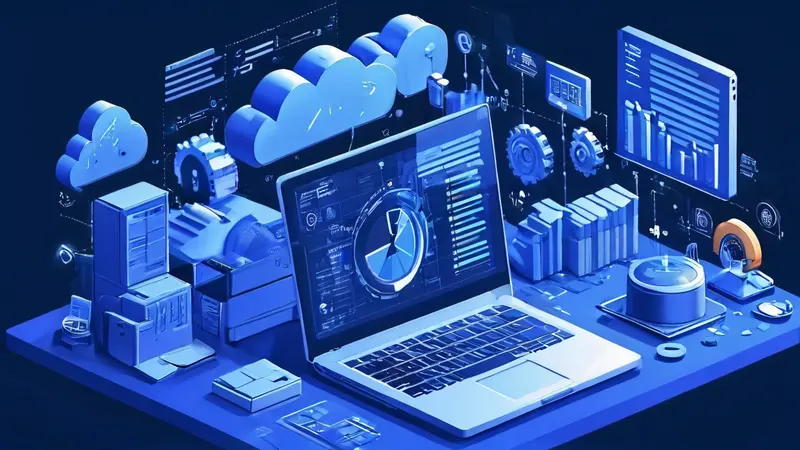The editor of Downcodes will take you to learn about hardware development related courses! By studying hardware development, you'll delve into the world of computer hardware and master the skills to design and build hardware devices. From basic computer systems and hardware to advanced embedded system design and FPGA design, a series of courses will build a solid professional foundation for you. This article will introduce the core content of these courses in detail to help you better understand the learning path of hardware development.

Hardware development-related courses mainly include computer systems and hardware, digital circuits and logic design, microprocessor principles and applications, computer composition and architecture, embedded system design, hardware description language and FPGA design, electronic system design, circuit analysis, signals and system etc. These courses will help students understand how computer hardware works, learn how to design and build hardware devices, and how to perform maintenance and repair of hardware systems. Among them, computer systems and hardware are the most basic courses, allowing students to have a comprehensive understanding of hardware and lay the foundation for subsequent courses.
Computer systems and hardware are the basis of hardware development-related courses. It mainly talks about the basic components of computer systems, including central processing unit (CPU), memory, hard disk, monitor, keyboard, mouse, etc. Students will learn how these components work and how to assemble them into a complete computer system. In addition, the course introduces some basic hardware troubleshooting and repair techniques.
The main goal of Digital Circuits and Logic Design is for students to understand how digital circuits work and how to design and implement these circuits. Course content includes basic digital logic gates such as AND, OR, and NOT gates, as well as more complex digital circuits such as adders, multipliers, registers, and memories.
The Microprocessor Principles and Applications course will allow students to understand how microprocessors work and how to use microprocessors to design and implement various applications. The course content includes the internal structure of microprocessors, instruction sets, programming interfaces, interrupt handling, timers and serial communication, etc.
Computer composition and architecture courses will allow students to understand the internal structure of a computer system, including CPU, memory, input/output devices, etc., and how these components work together. Course content includes data representation and processing, instruction execution, memory organization and management, input/output system design, etc.
Courses in Embedded Systems Design will provide students with an understanding of the basic concepts of embedded systems and how to design and implement these systems. Course content includes hardware and software design of embedded systems, real-time operating systems, embedded networks, performance analysis of embedded systems, etc.
Courses in Hardware Description Languages and FPGA Design will provide students with an understanding of the basic concepts of Hardware Description Languages and how to use these languages to design and implement digital circuits. The course content includes the basic syntax and semantics of hardware description languages, basic concepts of FPGA, FPGA design process, FPGA programming, etc.
Courses in Electronic Systems Design will provide students with an understanding of the electronic system design process and how to use electronic devices and components to design and implement a variety of electronic systems. Course content includes design principles of electronic systems, selection of electronic devices and components, testing and verification of electronic systems, etc.
Courses in circuit analysis will introduce students to the basic concepts of circuits and how to analyze and design circuits. Course content includes the analysis and design of resistors, capacitors, inductors, AC and DC circuits, and the use of circuit analysis tools such as SPICE.
Courses in Signals and Systems will provide students with an understanding of the basic concepts of signals and systems, as well as how to analyze and design signal processing systems. Course content includes the representation of continuous-time and discrete-time signals, the properties and description of systems, signal transformations and system responses, etc.
1. What is a hardware development course?
A hardware development course is a course that teaches students how to design, build, and debug electronic hardware systems. It covers knowledge and skills in electronic circuit design, embedded system development, circuit board layout and soldering.
2. What does the hardware development course include?
Hardware development courses usually include basic knowledge of electronic components and circuits, digital and analog circuit design, embedded system development, circuit board design and layout, microcontroller programming, sensor and actuator applications, etc.
3. What are the benefits of taking a hardware development course?
Studying hardware development courses can help you master the basic principles and skills of electronic hardware design and development, laying a solid foundation for your future career as a hardware engineer, circuit designer and other related careers. In addition, hardware development courses can also cultivate your innovative thinking and problem-solving skills.
I hope the above content can help you have a more comprehensive understanding of hardware development courses. I wish you good luck with your studies!